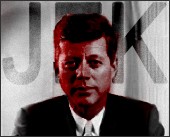Civilized Ways to the Geopolitical Future
|
April 17, 2006
by Rodrigue Tremblay
|
How to have peace and order among independent and sovereign nations in an economically globalized modern world, without having the hydra of imperialism and colonialism resurface from past centuries? That is the international challenge of the 21st Century. In fact, this has been the challenge since the Peace of Westphalia, signed after the 30-year long religious war, on October 24, 1648.
Sadly, the forces of political and economic disintegration are presently at work and threaten the very delicate fabric of international cooperation that has been built during the latter half of the 20th Century. Against all expectations, the United States for one, under the Bush Jr. administration, has reneged on its past and shortsightedly chosen the dead-end road of unilateralism, militarism, imperialism and colonialism.
Such a view of the future is not only a throwback to a chaotic past, but it is politically unacceptable and economically unworkable. It is politically unacceptable because it represents a duplication of the undemocratic and imperialistic 19th Century. It is economically unworkable because the free functioning of markets and the required movements of people, goods and capital between countries, which has been a source of wealth creation and economic progress for the world for more than half a century, cannot be preserved without a reinforcement and a commitment to the rule of international law. Regression toward imperialism and colonialism will inevitably bring revolt and resistance in all corners of the world, which will in turn translate into more chaos and instability in international relations. Indeed, such an unwise development could unravel the entire system of economic globalization.
We need a new vision and new commitments to international law and to international institutions in order to make them better adapted to a shrinking and more integrated world. But such a development requires new political leadership and new directions. Europe, the United States and other major nations such as Russia, China, India, Japan, Brazil, ... need to work out a consensus on how to inject more multilateralism, more democracy and more efficiency into international relations, not less. -Europe, in particular, should project its influence in a more coherent and a more cohesive way. The United States, on its part, would need to repudiate the extremist and illegal "Bush Doctrine" and its anarchic rule of force, while other countries must realize that prosperity for all requires compromises and domestic reforms.
Even if this may be politically popular domestically, the United States should understand that bombing foreign countries-besides being immoral-is not a viable policy and is no substitute for a more legal international system. On a practical level and in the immediate future, Europe, Canada and the United States should attempt to enlarge the very successful 1975 Helsinki Accords, to include countries of the Middle East and Southeast Asia. Disillusioned and frustrated Latin American countries would also have to be reassured that more economic integration does not threaten their independence and domestic autonomy, and does not represent a return to imperialism.
At the current juncture, economic interdependence cannot progress without solemnly proclaiming the principle of self-determination and independence of sovereign nations and without credible protection against whimsical foreign interventions. Nor can it progress if the richer countries do not assist the poorer ones in getting out of poverty and underdevelopment. More than ever, the world needs a "Marshall Plan-type effort" to help the poorer countries catch up with their economic development.
If the world does not accept to make the necessary compromises to establish a more peaceful and a more stable system of mutually profitable political and economic interrelations, it will inevitably regress toward more conflicts, more instability and more disintegration. Every nation will lose because the negative consequences will be worldwide.
Many economists, including myself, have long feared that the forces of disintegration which are at work within the long economic Kondratieff cycle will create a decade of political and economic regression. As a reminder, this approximately 54- to 60-year cycle in human affairs, from bottom to bottom, began in 1949, when price controls were lifted and when national economies resumed their free functioning after World War II. Some bottoming of the current Kondratieff cycle could therefore be expected to appear between 2003 and 2009, precisely at the time when many economists predict that a peak in world production of oil will occur.
If Arnold Toynbee's century-long cycle of war unfolds simultaneously, it is not a worldwide recession, along the lines of the 1981-82 recession, that we will witness, but a worldwide economic depression more analogous to the worldwide economic depression of the 1930's. All the ingredients for such a catastrophe are presently in place, i.e. huge international financial imbalances, huge debt build-ups and over consumption, unsustainable public deficits and monetary expansions, widespread financial and political scandals, mediocre and corrupt political leaderships in many key-countries, and a general climate of lawless wars with religious overtones. If the interaction of these geopolitical forces comes into play, a worldwide economic depression will likely ensue.
If, as some fear, the scramble for energy resources becomes more pronounced, the result will undoubtedly be more conflicts and more wars. The resulting international political chaos will only make it more difficult for numerous countries to embark upon the path of necessary economic adjustments. But who is going to rise above the tumult and show the ways to avoid the catastrophe? It is possible that the trough of the current long cycle cannot be postponed and that the only hope may be to have enough wisdom and vision, on the individual and collective levels, to take measures in order to mitigate its expected destructive effects.
Perhaps the Secretary General of the United Nations should exert some leadership and convene an international conference on the very subject of how to avoid wars and economic depressions. Alternatively, the G-8 could take such a leadership, but with the current political vacuum in Washington D.C., I would not hold my breath!

|
|



